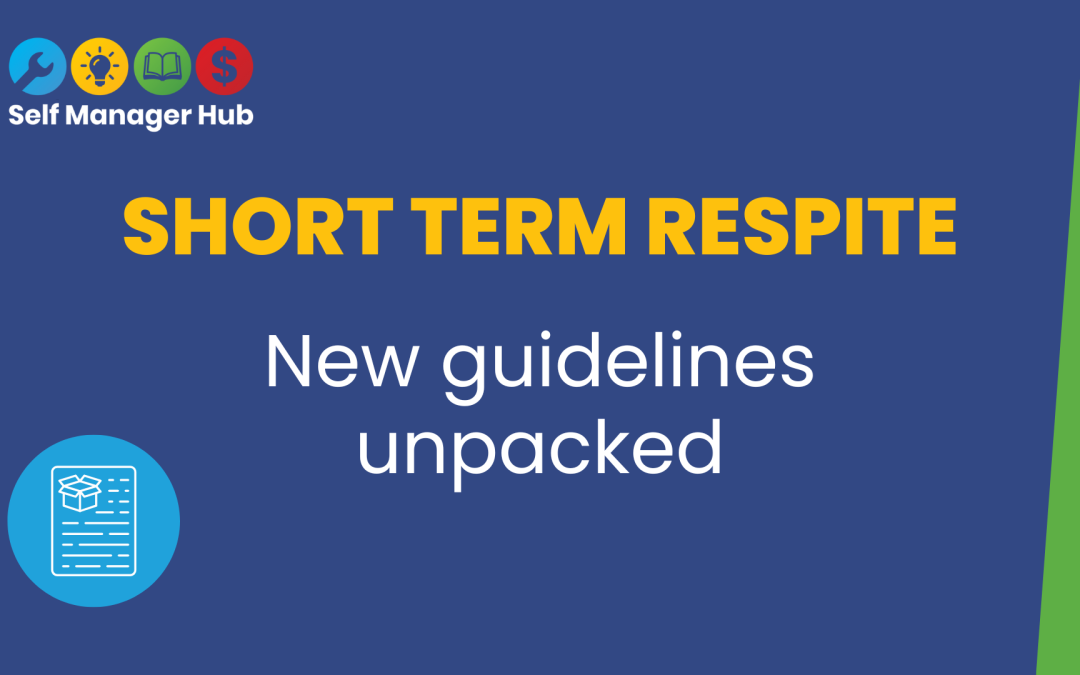📢 Short Term Respite replaces the term ‘Short Term Accommodation’ — and the new NDIA guidelines are finally here.
After a long wait, the NDIA has released new guidelines explaining how Short Term Respite (STR) works and how it can be included in your NDIS plan.
The name change isn’t just about new words — it’s about the government wanting to make the purpose of this type of funding very clear. Short term respite isn’t about holidays or having fun. It’s about maintaining the support you get from your family, friends, or others who help you every day that the NDIS doesn’t pay for — what the NDIS calls informal supports.
The government wants to make it clear that short term respite gives unpaid people who support us a chance to rest and recharge while making sure we still get the disability-related support we need.
We understand that there are already concerns around this and we will raise them with the agency, but in the meantime, here is an explainer of what the guidelines say.
🔹 Fast facts about Short Term Respite
What it’s for
- Gives you and your family or informal supports a short, planned break.
- Helps everyone rest, recharge, and keep your caring arrangements sustainable.
- Focuses on maintaining your informal support network — the unpaid people who support you day to day.
How long you can use it
- Up to 14 days at a time.
- Up to 28 days per year.
- You can spread it out (e.g. one weekend a month) or take it all at once.
- More than 28 days can be funded only in exceptional circumstances, such as very high support needs or when a carer’s health is declining.
Where it can happen
- In a respite house, hotel, short-stay rental, or your own home with different supports.
- The focus is on the support, not the location.
What’s included
- Basic, accessible accommodation.
- Disability supports like personal care, help with meals, cleaning, or community access.
- Support to take part in community, cultural, or social activities (but not the cost of the activities).
What’s not included
- Holidays, cruises, tours, or leisure trips.
- Meals, transport, and activity costs — these are day-to-day living expenses.
- Accommodation or travel costs for family or support workers going on holidays.
Children and respite
- For children under 18, short term respite is only funded in exceptional cases.
- Usually when a child’s care needs are much higher than normal for their age, and parents need a break to sustain their caring role.
🗓️ The Self Manager Hub will be running a workshop on 14 November 2025 to unpack these new guidelines in plain language with experts from the NDIA ready to explain it all and answer your questions.
We’ll go through what’s new, what it means for you, and how to use this funding the right way to support yourself and your family.
You can read the full guidelines here:
https://www.ndis.gov.au/understanding/families-and-carers/how-we-can-help-carers/short-term-respite
See Easy Read fact sheet here.

